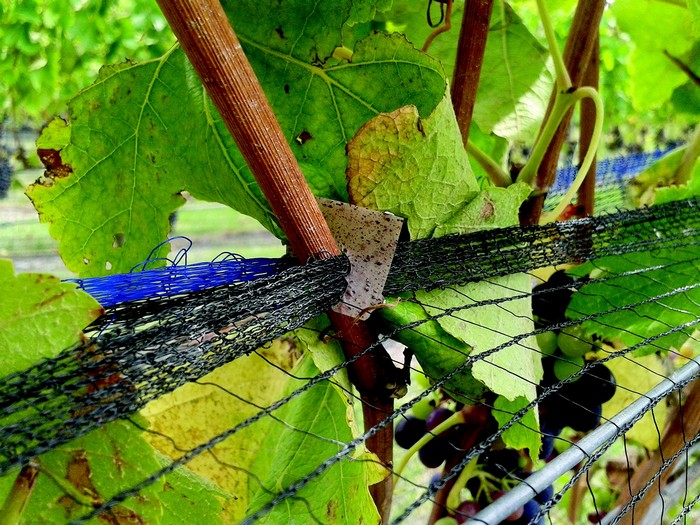Biodegradable vine clips win Outstanding Collaboration Award
For immediate release
23 November 2020
EPL and Scion are thrilled to win the 2020 Sustainable Business Awards Outstanding Collaboration Award for PolyDegrade™ Vine Clips.
This Outstanding Collaboration Award is presented to organisations that have collaborated on a project with sustainable outcomes and outstanding results and is sponsored by Toitū Envirocare.
The award-winning collaboration has created an eco-friendly vine clip. Vine clips are used to hold nets over ripening bunches of grapes to prevent loss from birds and other pests. After six to eight weeks the nets are removed and the clips fall to litter the ground and contribute to microplastic pollution. Around 30 million of these clips are used by the New Zealand wine industry every year.
Scion biomaterial experts saw an opportunity to combat this environmental issue. They designed a clip made from biodegradable thermoplastic. Once the clips hit the ground, they breakdown into carbon dioxide by the time a new wine producing season comes around.
Scion approached EPL to help commercialise the vine clip. EPL optimised the clip to create PolyDegrade™ Vine Clips, a solution that is sustainable and scalable. EPL plans to produce 30 million clips in 2021, effectively replacing all non-biodegradable clips.
EPL say they are honoured to win the Outstanding Collaboration Award alongside Scion and thank all the teams and partner companies that have been involved in making this project a reality. “At EPL we understand we too need to do our bit to operate more sustainably. That's why on top of the waste management and tree planting projects we already commit too, we're developing a new range of sustainable products made from biodegradable, natural or recyclable compounds that are designed to meet the growing sustainability needs of our clients.”
Dr Julian Elder, Scion CEO, is also delighted with the win. “This is a great example of collaboration between science, industry and end users taking a new biomaterial to commercial reality. And it is a step along the way in New Zealand’s transition to a circular bioeconomy.”
-ends-

